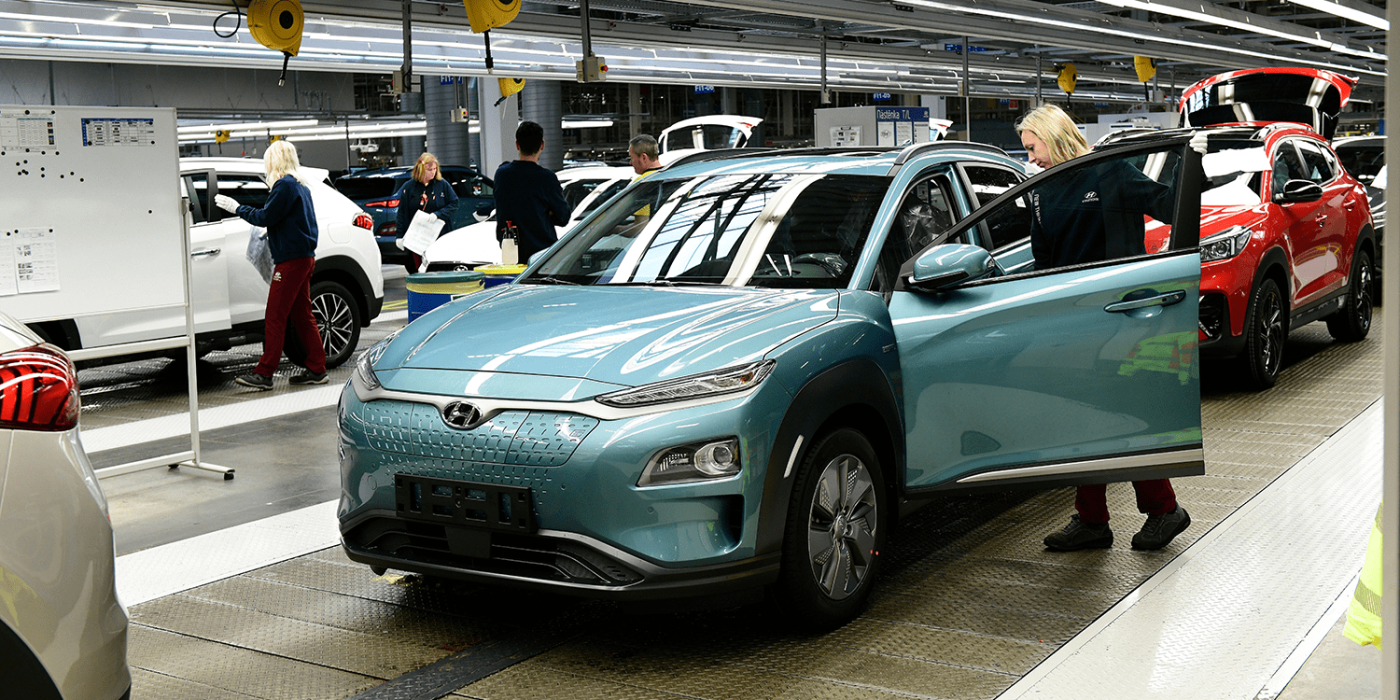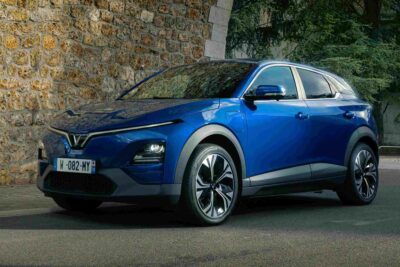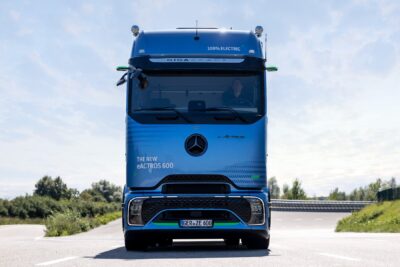COVID-19: carmakers reopening factories
Following the pandemic closure of production facilities around the globe, first carmakers are carefully reopening the plants to begin making cars and components again. We will update the electric vehicle-related reopenings continuously here.
++ Kindly find all updates to this article below. ++
Since mid-March, numerous car manufacturers – starting with PSA and FCA – have closed their plants in Europe, followed by their North American contemporaries. Since the end of March, car production in Europe has almost been completely suspended.
Now, however, first carmakers have tentatively begun to restart production. The Hyundai plant in Nošovice, Czech Republic, has resumed operations after a coronavirus-induced break of more than three weeks. Audi has also reopened its first component plant – at least partially.
Now that the Hyundai plant in Nošovice is going back to production, the European production of the Kona Electric can continue. This had only just started in March a few days before the shutdown, but the European arm of the South Korean company still managed to deliver the first vehicles. Besides, the European version of the Kona Electric 64 kWh will have a slightly higher range.
In Nošovice, however, only two of the usual three shifts are working for the time being, as a spokesman confirmed to the German press agency dpa. Hyundai’s European factory has introduced stricter hygiene regulations, and the company plans to disinfect the premises several times a day. Partition walls have also been installed in the canteen. The company spokesperson did not reveal its targeted preliminary production capacities.
Also picking up where they left off, Audi’s first plant in Györ, Hungary, has also resumed production. One line for engine assembly is back in operation with around 100 employees producing “several hundred engines a day”. At the end of the week, another motor assembly line will start up there, and vehicle production will start “according to current plans” at the end of next week. Audi did not specify which drives will be built again – the electric motors for the e-tron also come from Györ. The e-tron production in Brussels (like the Audi plant in Neckarsulm) is to restart on April 20, Ingolstadt on April 27.
Update 16 April 2020: The Volkswagen Passenger Cars brand has decided to gradually restart production at its European plants. The MEB plant in Zwickau (where the ID.3 will be built) and the Bratislava plant in Slovakia will start production on April 20. Among other things, the Skoda Citigo-e, but also the PHEV versions of the Porsche Cayenne and Audi Q7 will be built there. Production of the recently introduced VW Touareg R had not yet started before the plant was closed.
In the week starting April 27, production will resume at the remaining German production facilities as well as in Portugal, Spain, Russia and the USA. In the course of May, production will then be successively restarted in South Africa, Argentina, Brazil and Mexico. The Volkswagen Commercial Vehicles plants in Hanover and at the Polish sites in Poznań and Września will also gradually resume production on 27 April – and with it production of the e-Crafter.
“At Volkswagen, the health of our employees was the top priority.” Production is to be ramped up in a “staggered and well-ordered” manner. “Production will be resumed in line with the current availability of parts, government requirements in Germany and Europe, the development of sales markets and the resulting modes of operation of the plants,” Volkswagen writes.
Production at some component plants (for example in Brunswick, Kassel and Salzgitter) is already more vigorous again – these plants had continued to operate on a smaller scale anyway because of the supply of parts to the Chinese plants. However, VW did not provide any information on the stability of the supply chain.
Toyota Motor Europe also announced that it will gradually resume production at its vehicle plant in France (Valenciennes) and at its engine and transmission plant in Poland (Jelcz-Laskowice and Walbrzych). In Valenciennes, where the Yaris including the hybrid version is manufactured, production will start on April 22nd on a limited scale, according to Toyota.
Porsche, on the other hand, has decided to extend their work pause in Stuttgart-Zuffenhausen and Leipzig for at least one more week, citing bottleneck issues in the supply chain.
Update 17 April 2020: Volvo Cars will reopen its plant in Ghent, Belgium, on April 20 with reduced production output. Volvo’s main Torslanda plant in Gothenburg will also reopen on April 20 after a short interruption in production. The reopening of the US plant in South Carolina is scheduled for 11 May.
Among other things, the PHEV version of the XC40 will be assembled in Ghent and a battery assembly line for the upcoming BEV XC40 P8 Recharge will be installed. The Torslanda plant will produce Volvo’s 60 and 90 models, including the PHEV versions. The V60 is also produced in Ghent in addition to Torslanda.
Update 20 April 2020: Tesla’s Gigafactory 1 in Nevada will be put back into operation on May 4th, as has now been officially confirmed. Production at the Tesla plant in Fremont, California, is also scheduled to start as planned on May 4. However, production will start under increased safety measures, masks and gloves will be compulsory, and the workplaces will be regularly disinfected. There will also be access controls: An infrared thermometer will measure the workers’ body temperature as they enter the factory. The canteens will remain closed for the time being in order to minimize personal contact. Employees can order and pick up food online.
The media reports did not indicate at what capacity production at the sites will be restarted. The feeder buses used by Tesla for the employees are to be filled to only 30 per cent of their capacity, however, in order to increase the distance between the seats. Tesla has adopted this measure from its production start-up at Gigafactory 3 in China.
Daimler is also successively re-starting its plants again from this Monday onwards – also under stricter hygiene regulations. One focus is on drive and transmission technology. According to Winfried Porth, the board member responsible for human resources, some plants will initially run only one shift, others will start with two or three shifts. However, the shifts themselves are not fully staffed and the times have been adjusted so that employees do not meet in the changing rooms or at the factory gates when changing shifts, the company says.
Update 23 April 2020: On Thursday, the Volkswagen factory in Zwickau, which was the first to close following the Corona restrictions, was put back into operation. At the same time, the engine plant in Chemnitz is also to restart production. Many hopes are resting on the ID.3 built in Zwickau, and the affected suppliers now also want to gradually bring their employees back from short-time work. Next Monday, production of the e-Golf will also start at the Transparent Factory in Dresden. The plants in Wolfsburg, Emden and Hanover will also start next Monday.
Despite the plants reopening, the cycle time will be significantly slower. VW is talking about only gradually restarting production in Zwickau. Some processes have had to be adapted because of the mask and distance requirements, and these new work steps first have to be tested. This means that, for example, initially only 50 ID.3s per day are to be built – about a third of the volume before the crisis. However, the figures published by VW only apply to Zwickau, similar figures for the other plants were not mentioned. “Health takes precedence over speed,” says eMobility board member Thomas Ulbrich. “That is why the primary concern at the moment is not how many cars can be built per day.”
But not everywhere in the VW empire is starting up again so quickly: Porsche will not resume production in Stuttgart-Zuffenhausen and Leipzig before 4 May due to ongoing problems with the supply chain. According to a report, these are specialised suppliers from Italy, where the situation there still does not allow for normal production, so important parts will not be available for Porsche. “Preparatory measures are being taken at both plants to ensure that production can be restarted in an orderly manner in the near future,” he said. At Porsche, the production break will then last at least six weeks.
The situation at Renault is different: Following the restart of plants in Spain and Portugal, the French company is now also slowly resumed production at several locations in France. The factories in Cléon, Le Mans and Choisy-le-Roi have resumed production this week, but only “very gradually” and with few workers. The plant in Flins where the Renault Zoe is produced should reopen next week.
Update 24 April 2020: Škoda is preparing to resume production at its three Czech plants in Kvasiny, Vrchlabí and Mladá Boleslav on April 27. The latter will produce high-voltage batteries for the VW Group’s PHEV models. These are used by Škoda itself, for example in the Superb iV and Octavia iV.
The production break at Jaguar Land Rover will last a little longer. The British plan to gradually resume production from 18 May, starting with the plants in Solihull (Great Britain), Nitra (Slovenia) and Graz (Austria). Graz will produce the electric Jaguar I-Pace, while Solihull will manufacture the Range Rover and Range Rover Sport with the PHEV versions P400e.
BMW is ramping up its plants again from 4 May, starting with the US car plant in Spartanburg and the motorcycle plant in Berlin. From 11 May, car production in Dingolfing in Lower Bavaria is to restart and “on 18 May at the earliest” the BMW main plant in Munich as well as the plants in Leipzig (BMW i3), Regensburg, in Rosslyn in South Africa and the mini plant in Oxford, where the electric mini will be manufactured.
Update 28 April 2020: Tesla’s plan to restart production at its plant in Fremont, California, on 4 May looks questionable. Apparently, the coronavirus protective measures in the area are being extended until the end of May. According to a report, Tesla is said to have already informed some employees in an email that they do not have to appear at work as planned. These were supposed to be paint shop employees who were to prepare their area this week for the production start on 4 May.
Tesla has not issued an official statement on the matter yet – it is also not clear whether Tesla will stick to the production start in Gigafactory 1 in Nevada, also scheduled for 4 May. The electric car manufacturer may possibly make a statement tomorrow when it announces its financial figures for the 1st quarter. These figures are likely to be affected above all by the interim corona shutdown in China. The plant in Fremont was only closed on 23 March shortly before the end of the quarter. The fact that no car has been built in Fremont since then is likely to have a particular impact on the second quarter: if the protective measures are indeed extended until June, the production shutdown in Fremont will affect two of the three months of the quarter.
Update 04 May 2020: More car manufacturers are resuming production of their (electric) cars and components in Europe. While Porsche‘s assembly lines in Zuffenhausen (Taycan) and Leipzig (Panamera PHEV) are running again after some delays since Monday, VW’s Czech subsidiary Škoda has also resumed assembly of high-voltage traction batteries for plug-in hybrid models of the Volkswagen Group at its headquarters in Mladá Boleslav as planned. However, Škoda does not name exact production capacities. It only says that the batteries will be built “in the required quantities”.
Daimler has also restarted production at its German car plants (Untertürkheim, Berlin, Hamburg, Sindelfingen and Bremen). From an electrical point of view, the Bremen site is important here, where, as is well known, the EQC is being built. At Mercedes, production is to be ramped up again in stages, so reduced capacities are also to be expected initially. However, there will probably not be a shortage of batteries: Battery assembly in Kamenz continued uninterruptedly – but with two completely decoupled shifts.
Nissan‘s plant in Barcelona will start up again today. Among other things, the e-NV200 will be manufactured there. In Sunderland in the north of England, where the Leaf, is produced, a gradual restart of vehicle production is planned no sooner than for the beginning of June.
Update 04 June 2020: BYD has begun the gradual reopening of its electric bus production facility in Lancaster, California. As with many other manufacturers, the production break has thus lasted much longer than initially planned: When the plant closed at the end of March, the talk was of two weeks. “As it reopens, BYD will continue to follow guidelines for safe operations set by California, Los Angeles County, and the City of Lancaster while ramping up production of all-electric transit buses and motor coaches that meet stringent Buy America standards,” the Chinese company writes.
Furthermore, BYD is also starting to sell electric cars in Colombia together with the local distributor Motorysa. The first order from Motorysa includes 132 electric cars from BYD, which will be delivered in the second half of this year and sold in Bogotá, Medellin, Cali and other cities
Update 09 June 2020: After about three months of downtime due to the spread of the corona virus, the Nissan plant in Sunderland has now restarted vehicle production. The Sunderland plant produces the Nissan Leaf, among other vehicles.
According to Nissan, a total of 5,000 processes at the plant have been subjected to a strict risk assessment to ensure that the health of the employees cannot be endangered. The improved safety measures include the installation of new separation units between employees, such as screens, barriers and partitions. A new one-way system has also been developed to prevent employees from getting too close to each other when walking around the plant. The break system and rest areas have also been adapted for this purpose
automobil-produktion.de (Hyundai), businessinsider.de (Audi) (both in German), volkswagen-newsroom.com (update), vwn-presse.de (update), automobilwoche.de (Porsche update in German), volvocars.com, teslarati.com (Tesla), handelsblatt.com (Daimler in German), freiepresse.de (VW in German), volkswagen-newsroom.com, automobilwoche.de (Porsche in German), automobilwoche.de (Renault in German), jaguarlandrover.com, skoda-storyboard.com, electrek.co (Tesla), teslarati.com, cnbc.com (Tesla), skoda-storyboard.com, daimler.com, porsche.com, nissannews.com, byd.com (bus factory), byd.com (Columbia), nissannews.com (Sunderland)





0 Comments